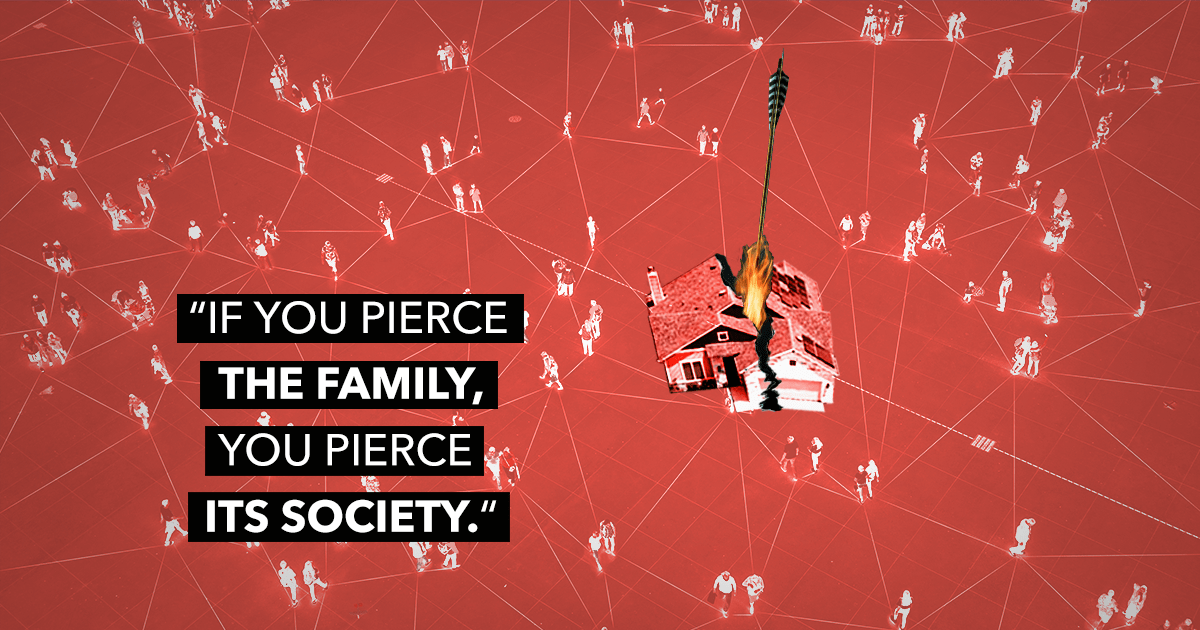Have you ever been cheated on in a dating relationship or marriage? If so, then you know the sting of pain and rejection from a significant other. In this post, author Joan C. Benson shares helpful lessons she has learned from the heartbreak of infidelity. She provides insight from her darkest times and hope for a brighter future from her recovery process.
The front door closed. Numb with disbelief, I swiped away the onslaught of tears flooding my cheeks and clicked the deadbolt.
What just happened?
The love of my life, my childhood sweetheart, and my husband of twenty-two years had just walked out. Out of our home. Out of our marriage.
My emotions pounded like successive tsunamis—from denial to anger to gut-wrenching despair. Pieces of my life lay broken, like shards of glass. Thankfully, at that wounding moment, I was spared the rest of the story. But it would unfold in time.
Trust had never been a concern in my once-happy marriage. Even acknowledging the temptations my husband would face as an airline pilot, my heart never doubted his faithfulness. We were soulmates. We started dating when we were ages 15 and 16, and I believed I knew him as well as I knew myself.
But sadly, to my shock and dismay, the door did close on our marriage that night. And as more details came to light, everything I believed about my husband, our marriage, and our calling as Christ-followers was decimated.
Adultery had toppled another Christian leader.
Our closest friends were confused about how to support us. Shame washed over me. I felt as if we had somehow failed in our representation of Christ to the lost world.
In time, the facts of my husband's affair came to light revealing a woman, fourteen years younger, who had become his greatest desire. Like King Edward the Eighth of Great Britain, my husband had abdicated the "throne" of his Christian purpose and calling. He ruined his discipleship (his parental and spiritual leadership) to his ever-watching children, and he denied our marriage vows.
Sadly, there are many chapters that followed in this convoluted and lengthy story. The sorry tale includes his remarriage, a disappearance off the coast of Florida, a third marriage under an assumed name, lawbreaking, a white-collar crime prison sentence, and a diagnosis of bipolar disorder.
However, through it all, the Lord carried me. In Isaiah, we read how God desires to give us a crown of beauty instead of ashes, the oil of gladness instead of mourning, and a garment of praise instead of a spirit of despair (Isaiah 61:3). And He did.
Here are four helpful lessons I learned in my darkest times, and four hopeful lessons I discovered while recovering from the pain of infidelity.
Lessons from the Darkness
1. Free Will. As a believer, I had faith that God desired our family's restoration. I prayed and fasted and fasted and prayed. I was confident my prodigal husband would return to his senses. However, as time passed and his sin of adultery evolved into a permanent relationship, I faced a new truth.
We are instructed to pray, but there is no guarantee of a breakthrough in someone else.
We are designed with free will to choose our destinies. Sometimes people respond to the Holy Spirit's prompting. Sometimes they do not. God does not promise to arm-wrestle people into submission even when we pray in faith.
However, God does promise He will not abandon or forsake us. Psalm 23:4 reminds us, "Even though I walk through the darkest valley, I will fear no evil, for you are with me; your rod and staff, they comfort me."
2. God's Word Is Life. Scripture and spiritual songs were my lifeline during the dark times. Each day God fed me like he did Elijah when he despaired of his very existence.
God buoyed my heart daily as I studied His Word. I knew He was with me. Did I immediately feel whole and healed? No. Healing was a process, but without God's Word, His unchanging truth, and praise music, I don't know how I would have gotten through the morass.
3. God Speaks Through Surprising People. God uses all manner of people, saved and unsaved, to deliver His messages. One startling example came from a colleague at my school. After I passed her in the hall, she spoke with boldness, "Things will get better, Joan." Her comment was odd because she didn't know me well. However, her delivery resonated.
The meaning of her words hung in the air with power as if they were spoken by God. She was not a friend. She wasn't even a Christian. But she made a positive declaration over my life. God used that woman's statement to encourage me like an echo, again and again. Never miss out on God's words even when they come from unlikely places!
4. Gain through Pain: Running with the Lord. One day, after seeing someone run along the beach, I decided running might be a good emotional release for me. I had never been a "runner," so my early attempts were grueling. But I persevered. Listening to Sandi Patti and other Christian artists singing spiritual truths as I ran, I knew God was with me. His presence was palpable. What I had once known only as a statement of faith was now my spiritual strength.
Lessons Learned in Recovery
1. We Need Others. Being new to the area, with our family and friends more than a thousand miles away, I didn't have a well-developed support network when the worst happened. My local church family was the last to know of our plight because I was still praying faithfully for my prodigal to return. My husband had been a Bible study teacher, and of course, I believed he was coming back.
So I was emotionally and spiritually isolated. Friends didn't know what to do because we had been "couple-friends." My teens were conflicted, not wanting to cut themselves off from the father they loved, but also not wanting to support his actions. We were all a mess.
Our family life pastor connected me with another woman who had experienced betrayal and unfaithfulness. We bonded immediately and became prayer partners. Soon my new friend started a Family Night where five of us gathered weekly. Some of our teen children joined in the meal, too. Most importantly, we prayed together, sharing our unique circumstances and hopes for the future.
2. Professional Counseling May Be Helpful. When I was reeling from the pain of my husband's rejection, there were times I thought I was losing my mind. I couldn't sleep and didn't want to eat. My brain kept replaying the details of my disaster relentlessly. So I went to a medical doctor who said my reactions were normal.
However, someone recommended a Christian counselor. I needed his counseling expertise and biblical perspective to help me figure out who I was. As long as I could remember, my identity was wrapped in the love relationship with my spouse. Since my ex-husband had been our family's spiritual head, I was now not only solo, but "headless." To this day, I can recall important truths the wise counselor poured into me.
3. Be Grateful for What Had Been Good—Despite the Loss. For a long time, I couldn't look at any family photos. I couldn't enjoy our history or remember all the fun we had parenting together. Slowly (over months and years), I was able to embrace what had been good without an emotional meltdown over the loss.
It was helpful for me to remember that I'd had a good marriage for many years, based on love and shared faith in Christ. My kids had a loving and attentive father for most of their child-rearing years. We did some wonderful things to cement our lives as a Christian family.
Yes, I can now say thank you, Lord, for the good in my life, while also acknowledging the damage and loss.
4. Don't Get Mired in Grief—There is a Season. It's comforting to know that God has good plans for each of us. Jeremiah 29:11 declares God's goodness for you and me.
The Bible doesn't say God has good plans until your spouse dumps on you, or when you lose your job, or a tornado wipes you out, or illness destroys your health.
Look at Job, the godly man in Scripture who lost everything—children, friends, health, fortune, and more. But God was not finished with him. God had good plans for Job. He made it possible for him to build a new life. Likewise, we also must look to the Lord for restoration and not stay stuck in grief.
Satan loves to make us dwell on the trials, preventing any joy and peace. Yet, after a season of weeping, we can live in victory again. God wants to give us hope for the future.
Through my story of loss and pain, I want to encourage you to praise God—even in the storms of life—for His presence, hope, and joy. He will never leave you or forsake you no matter how deep the waters, or how hard the mountains are to climb.
JOAN C. BENSON is a wife, mother of four adult children, grandmother of eight, former educator, and author/speaker. She has been a freelance writer for over thirty years in addition to having served as a reading specialist, teacher mentor, and classroom teacher in her first career. Joan has been published in multiple Christian magazines. Her debut historical fiction novel, His Gift, was published in 2020. She recently co-authored four children's books with Marjorie Wingert. Connect with Joan at: JoanCBenson.com.












